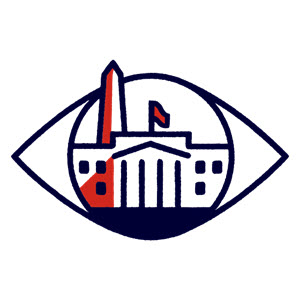Due Date for Furnishing IRS 2018 Forms 1095-C Extended

Transition Relief from Accuracy Penalties
On November 29, 2018, the Internal Revenue Service (IRS) Notice 2018-94 announced the extension of the due date to furnish 2018 health coverage information forms to employees. Applicable Large Employers (ALEs) now have until March 4, 2019, to provide Forms 1095-C to individuals.
The IRS also extended transition relief from penalties under Sections 6721 and 6722 to ALEs that can demonstrate that they made good-faith efforts to comply with the Form 1095-C reporting requirements under Section 6056 for 2018; both for furnishing to individuals and for filing with the IRS, for incorrect or incomplete information.
Background
Internal Revenue Code (IRC) Section 6056 under the Affordable Care Act (ACA) requires ALEs to report to the IRS whether they offer their full-time employees and their employees' qualified dependents the opportunity to enroll in minimum essential coverage (MEC) under an eligible employer-sponsored plan. An ALE is an employer that employed (any combination of workers within a controlled group) an average of at least 50 full-time employees (including full-time-equivalent employees) during the preceding calendar year. Employees are considered full-time in any month that they are credited with at least 30 hours of service per week, on average, or 130 hours of service in the month.
ALEs must furnish Forms 1095-C to employees or covered individuals regarding the healthcare coverage offered to them. Individuals may use this information to determine whether, for each month, they may claim the premium tax credit on their individual income tax returns.
Form 1095-C is to be furnished and filed for each employee who was full-time for one or more months of a year, and includes details of any healthcare coverage offered to the employee, reported on a monthly basis. For self-insured plans, Form 1095-C must also be provided to individuals who enrolled in qualified coverage, which may include non-full-time employees and any covered spouses and dependents.
The January 31 deadline to furnish Forms 1095-C to employees was also extended for 2015 (Notice 2016-4); for 2016 (Notice 2016-70), and 2017 (Notice 2018-06).
Extended Deadline to Furnish 2018 Forms 1095-C to Employees
IRS Notice 2018-94 announced an extension of the deadline to furnish Forms 1095-C to employees until March 4, 2019, but employers are encouraged to furnish such statements as soon as possible. The extension is automatic and does not need to be requested.
The deadline for filing Forms 1095-C is not extended, and remains February 28, 2019 for paper filers, or April 1, 2019 for electronic filers. Electronic filing is required for parties filing 250 or more forms.
Employers may wish to notify affected employees of any delay in furnishing Forms 1095-C, and offer general guidance to assist them in preparing their Income tax return. Most employees will not need the Form 1095-C to prepare their return. Most will know whether they had coverage for a month and can simply check a box on the form to attest that they and any dependents had "minimum essential coverage" throughout the year. Taxpayers may also rely on other information received from their employer or coverage provider for purposes of filing their returns, including determining eligibility for the premium tax credit and confirming that they had minimum essential coverage. Taxpayers do not need to wait for Form 1095-C to file their returns.
"Good-Faith" Transition Relief From Penalties for Incorrect or Incomplete Information
The IRS also extended transition relief from penalties under Sections 6721 and 6722 to ALEs that can demonstrate that they made good-faith efforts to comply with the Form 1095-C reporting requirements; both for furnishing to individuals and for filing with the IRS, for incorrect or incomplete information.
Section 6721 of the Code imposes a penalty for failing to timely file an information return or for filing an incorrect or incomplete Information Return. Section 6722 of the Code imposes a penalty for failing to timely furnish an information statement or for furnishing an incorrect or incomplete information statement.
The IRS previously provided transition relief from penalties under Sections 6721 and 6722 to ALEs that could show that they made good-faith efforts to comply with the ACA information-reporting requirements for 2015, 2016 and 2017. This relief applied only to incorrect and incomplete information, and not for failure to furnish or failure to file Forms 1094-C/1095-C.
Notice 2018-94 extends this relief to 2018 Forms 1094-C/1095-C. ALEs will be eligible for relief if they can show that they made good-faith efforts to comply with the reporting requirements for correct and complete information. No relief is provided for failure to file or to furnish a statement by the due dates (as extended by Notice 2018-94). In determining good faith, the IRS will take into account whether an employer made reasonable efforts to prepare for reporting the required information and furnishing it to employees. The IRS will also take into account the extent to which the employer is taking steps to ensure that it will be able to comply with the reporting requirements for 2018.
"Good-Faith" Efforts May Require Action
As noted, no relief will be provided in the case of reporting entities that do not make a good-faith effort to comply with the regulations. With respect to the accuracy of information reported, such as names and Social Security numbers (SSNs), these regulations are reflected and explained in IRS Publication 1586. This publication specifies the actions needed to avoid penalties for Information Returns (e.g., Forms 1095-C and W-2) that are filed or furnished with missing or incorrect SSNs, or with names that do not match the corresponding SSNs.
Accuracy penalties can be up to $270 per return for failure to file and failure to furnish accurate and timely Information Returns, up to an annual cap of $3,275,500 ($1,091,500 for employers with gross receipts under $5,000,000). Separate penalties under Sections 6721 and 6722 may apply to filing and furnishing, so the aggregate penalty could be $540 per statement, up to $6,564,000 per year. The IRS has generally not asserted such penalties systemically for Forms 1095-C or Forms W-2, but enforcement policy may change in the future.
To avoid such penalties, employers may need to follow Publication 1586 guidance to check with employees if they become aware of a name/SSN error. For example, the IRS electronic filing system for Forms 1095-C notifies employers of any errors in names and SSNs. These error notices are not an IRS Notice 972CG; i.e., do not require a specific solicitation, but it may be reasonable under the circumstances to check the employer's records to confirm that the information provided by the employee was transcribed correctly; and, if so, to ask affected employees to verify that the information provided matches the name and Social Security number on their Social Security card. For example, people may forget to notify the SSA of marriages, divorce, etc.
For more information, see IRS Notice 2018-94 or IRS Publication 1586
ADP Compliance Resources
ADP maintains a staff of dedicated professionals who carefully monitor federal and state legislative and regulatory measures affecting employment-related human resource, payroll, tax and benefits administration, and help ensure that ADP systems are updated as relevant laws evolve. For the latest on how federal and state tax law changes may impact your business, visit the ADP Eye on Washington Web page located at www.adp.com/regulatorynews.
ADP is committed to assisting businesses with increased compliance requirements resulting from rapidly evolving legislation. Our goal is to help minimize your administrative burden across the entire spectrum of employment-related payroll, tax, HR and benefits, so that you can focus on running your business. This information is provided as a courtesy to assist in your understanding of the impact of certain regulatory requirements and should not be construed as tax or legal advice. Such information is by nature subject to revision and may not be the most current information available. ADP encourages readers to consult with appropriate legal and/or tax advisors. Please be advised that calls to and from ADP may be monitored or recorded.
If you have any questions regarding our services, please call 855-466-0790.
ADP, LLC.
One ADP Boulevard,
Roseland, NJ 07068
Updated on December 3, 2018



